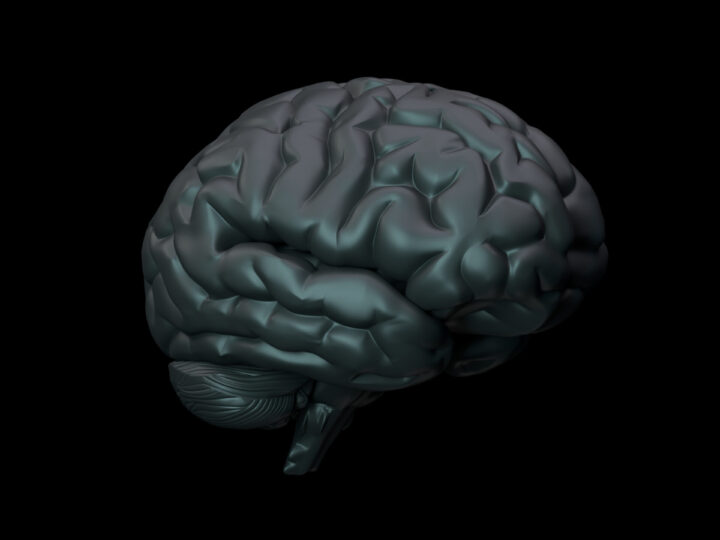Clinical Trials in Mental Health: Current Landscape and Emerging Approaches

The field of mental health research is experiencing significant growth in clinical trial activity, with thousands of studies currently investigating treatments for various psychiatric conditions. Recent data shows that depression leads with over 11,000 registered trials, followed by anxiety disorders with more than 8,000 trials, while conditions like schizophrenia and bipolar disorder have fewer but still substantial research initiatives. This comprehensive report examines the current landscape of mental health clinical trials, highlighting ongoing studies for major psychiatric conditions, methodological approaches, and innovative treatment mechanisms being investigated.
Overview of Mental Health Clinical Trials
The mental health research landscape is characterized by a substantial number of registered clinical trials across various conditions. According to current data from ClinicalTrials.gov, depression represents the largest focus area with 11,276 registered trials, followed by anxiety disorders (8,446), general mental health studies (5,411), schizophrenia (4,060), and bipolar disorder (1,920). This distribution reflects both the prevalence of these conditions in the general population and the significant research interest they attract.
Clinical trials in mental health present unique challenges and characteristics that distinguish them from other medical research. A study examining mental health trials registered in ClinicalTrials.gov found that these trials tend to be relatively small in size, predominantly use placebo rather than active comparators, and typically employ randomization and blinding methodologies to maintain scientific rigor (2). The study also highlighted differences between for-profit and non-profit sponsors in key trial characteristics that relate to data integrity, raising important considerations about how these differences might influence research outcomes and subsequent treatment approaches (2).
Current Clinical Trials for Major Mental Health Conditions
Depression and Treatment-Resistant Depression
Depression research constitutes the largest segment of mental health clinical trials, with particular focus on treatment-resistant depression (TRD), where conventional therapies have failed to provide adequate symptom relief. Stanford Medicine’s Depression Research Clinic is currently conducting the COMP 005 clinical study, investigating a novel treatment approach for TRD that combines an investigational medicine with psychological support (3). This 16-week study compares the effectiveness of the active investigational medicine against placebo, with two-thirds of participants receiving the active treatment and one-third receiving placebo (3).
Another significant study in the TRD space is being conducted by Perception Neuroscience, examining the safety and efficacy of intravenous PCN-101 in treatment-resistant depression (6). This Phase 2a randomized, placebo-controlled, double-blind study involves 93 adult subjects with TRD randomized equally into three treatment arms (6). The study includes careful monitoring of participants’ alertness, mood, and other psychological parameters through clinician and patient-completed assessments (6).
The National Institute of Mental Health (NIMH) has also highlighted recent research showing that incorporating depression treatment into care for chronic health conditions improved well-being for both patients and their families, as demonstrated in a study conducted in Malawi (1). This integrated approach to depression care represents an important direction in expanding treatment access and effectiveness.
Anxiety Disorders
Anxiety disorders represent the second largest category of mental health clinical trials. A notable ongoing study is the “Voyage” Phase 3 trial investigating MM120 (LSD D-Tartrate) for Generalized Anxiety Disorder (GAD) (4). This trial, which commenced in December 2024 with estimated completion in November 2026, employs a double-blind, placebo-controlled design followed by an open-label extension (4). The study will enroll up to 200 participants aged 18-74 with DSM-5 confirmed primary diagnosis of GAD and minimum Hamilton Anxiety Rating Scale (HAM-A) total score of at least 20 (4).
The Voyage trial follows a 12-week randomized, double-blind, single-dose administration period comparing MM120 versus placebo, followed by a 40-week extension phase offering opportunities for open-label treatment (4). This extended follow-up period allows researchers to monitor long-term efficacy and safety, a critical consideration in anxiety disorder treatment where symptom recurrence is common.
Schizophrenia
Schizophrenia research has seen the development of several innovative approaches targeting both total symptoms and specific symptom domains. Four major late-stage clinical trials highlighted in the research literature include studies of brilaroxazine, evenamide, ulotaront, and pimavanserin (5).
Reviva Pharmaceuticals’ Phase III RECOVER trial is evaluating brilaroxazine, a dopamine-serotonin stabilizer that acts on both dopamine and serotonin receptors (5). The study measures change versus placebo over four weeks using the Positive and Negative Symptoms Assessment (PANSS), which assesses the full spectrum of schizophrenia symptoms (5).
Newron Pharmaceuticals is investigating evenamide, which blocks glutamate modulation and voltage-gated sodium channels, in both chronic schizophrenia and treatment-resistant schizophrenia (5). The latter represents a significant unmet need in schizophrenia treatment, where approximately 30% of patients do not respond adequately to current therapies (5).
Sunovion Pharmaceuticals’ ulotaront offers a different approach than traditional antipsychotics by acting as an agonist of the trace amine-associated receptor 1 (TAAR1) and serotonin 5HT1A receptors rather than targeting dopamine receptors directly (5).
Perhaps most notably, Acadia Pharmaceuticals is specifically targeting the negative symptoms of schizophrenia with pimavanserin, a serotonin inverse agonist and antagonist preferentially targeting 5HT2A receptors (5). The negative symptoms, which include apathy, withdrawal, and blunted affect, represent an enormous unmet treatment need with no currently approved therapies (5).
Bipolar Disorder
Recent advances in bipolar disorder research include the largest-ever genome-wide study of a diverse group of people with bipolar disorder, which has shed new light on the genetic architecture underlying the condition (1). This foundational research has implications for future clinical trials targeting specific genetic pathways.
While bipolar disorder has fewer registered clinical trials (1,920) compared to depression and anxiety, genetic studies like this one may help stimulate more targeted intervention trials in the future, potentially addressing the significant treatment gap for this serious mental health condition.
Methodological Approaches in Mental Health Trials
Mental health clinical trials employ diverse methodological approaches to assess treatment efficacy and safety. The common elements include randomization, blinding (usually double-blind design), and placebo controls, as identified in the analysis of trials registered in ClinicalTrials.gov (2). These design elements help minimize bias and improve the reliability of findings.
Outcome measures in mental health trials typically include both clinician-rated and patient-reported assessments. For example, schizophrenia trials commonly use the PANSS to measure symptom severity across positive, negative, and general psychopathology domains (5). The HAM-A is similarly used in anxiety trials to quantify symptom severity4. For negative symptoms of schizophrenia, specialized scales like the Negative Symptom Assessment-16 (NSA-16) provide more focused evaluation of specific symptom clusters (5).
An important development noted by the National Institutes of Health is the funding of six projects specifically aimed at developing, testing, and validating outcome-focused quality measures for mental health (1). These measures are designed to better understand the impact of interventions when implemented in real-world healthcare systems and settings, bridging the gap between controlled clinical trials and everyday clinical practice (1).
Innovative Treatment Mechanisms Under Investigation
Mental health clinical trials are increasingly exploring novel treatment mechanisms beyond traditional pharmacological approaches targeting monoamine systems (serotonin, dopamine, norepinephrine).
In schizophrenia research, novel mechanisms include glutamate modulation (evenamide), trace amine-associated receptor agonism (ulotaront), and selective targeting of serotonin receptor subtypes (pimavanserin) (5). These approaches represent a shift from the dopamine-focused paradigm that has dominated schizophrenia treatment for decades.
For treatment-resistant depression, innovative approaches include psychedelic-assisted therapies and rapid-acting antidepressants. The COMP 005 study exemplifies this trend, investigating an investigational medicine combined with psychological support (3). Similarly, the PCN-101 study is examining an intravenous intervention for TRD, potentially offering more immediate relief than traditional oral antidepressants that may take weeks to show effect (6).
The investigation of MM120 (LSD D-Tartrate) for generalized anxiety disorder represents another innovative approach, leveraging psychedelic compounds’ potential to create rapid and lasting changes in neural connectivity and psychological functioning (4).
Challenges and Future Directions in Mental Health Clinical Research
Despite the substantial number of clinical trials in mental health, significant challenges remain. The analysis of ClinicalTrials.gov data revealed limitations in the registry’s fulfillment of its purpose as a means of promoting transparency between researchers and the public (2). The researchers noted concerns about whether the registry provides complete and quality information about the trials it contains, which has implications for data integrity and research reproducibility (2).
The preference for placebo rather than active comparators in mental health trials (2) raises questions about how new treatments compare to existing standards of care, potentially limiting clinical decision-making when multiple treatment options exist.
The NIMH’s emphasis on developing tools for measuring mental health outcomes (1) reflects recognition of the need for more sophisticated and clinically meaningful assessment approaches. Similarly, research into the structural features of memory formation at cellular and subcellular levels (1) represents a move toward more mechanistic understanding of mental health conditions, which could lead to more targeted interventions.
The global nature of mental health research is highlighted by studies like the Malawi depression care initiative (1), demonstrating the importance of culturally appropriate and contextually relevant approaches to mental health treatment across diverse populations and healthcare systems.
Conclusion
The landscape of mental health clinical trials is expansive and diverse, with thousands of studies investigating treatments for conditions ranging from depression and anxiety to schizophrenia and bipolar disorder. Current research emphasizes novel treatment mechanisms, integrated care approaches, and targeted interventions for specific symptom domains or treatment-resistant populations.
Methodological challenges persist, including questions about trial design, outcome measurement, and registry transparency. However, initiatives to develop better assessment tools and understand underlying neurobiological mechanisms offer promise for more effective and personalized treatments in the future.
As research continues to evolve, the integration of genetic insights, neuroimaging findings, and real-world implementation studies will likely shape the next generation of clinical trials in mental health, ultimately improving outcomes for individuals affected by psychiatric conditions worldwide.




